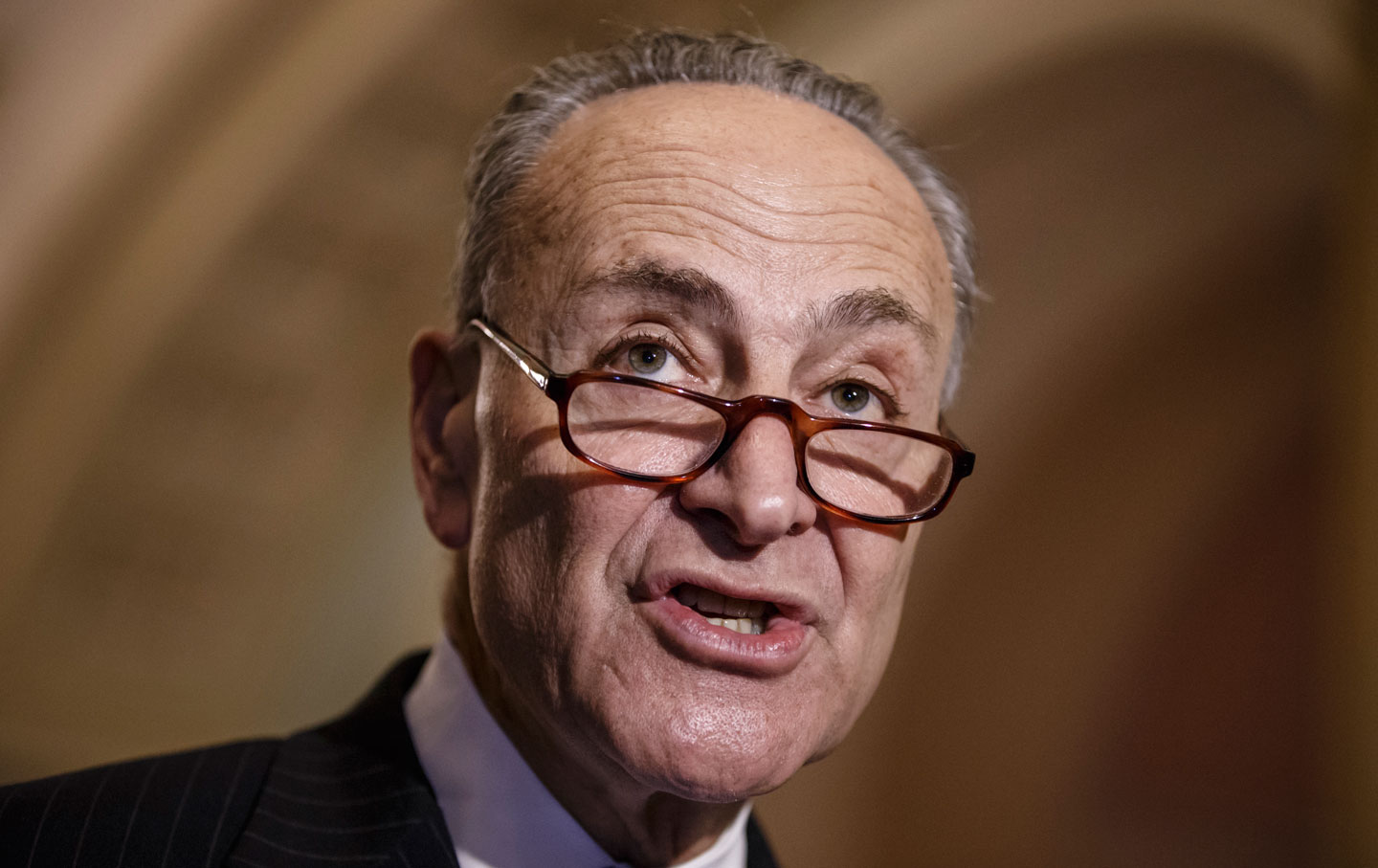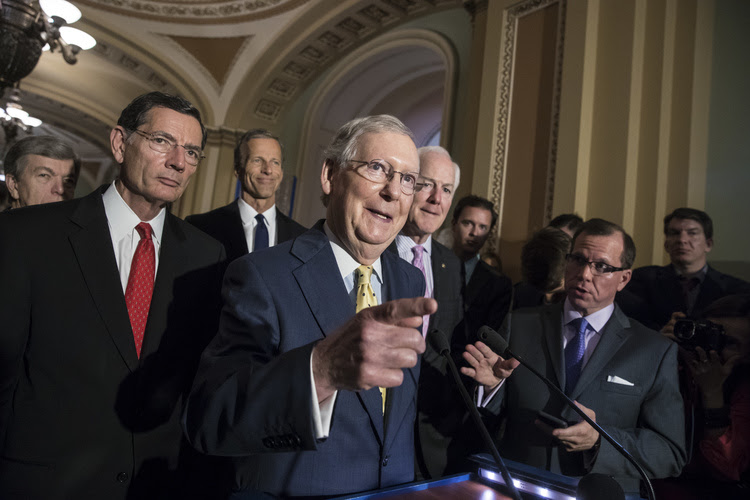 |
| Sen. Charles Schumer (AP Photo / J. Scott Applewhite) |
One main takeaway for Democrats from their loss in Georgia’s special election is that the party has not focused enough on issues that directly impact people’s lives.
Rep. Joseph Crowley (D-N.Y.), chairman of the House Democratic Caucus, told his colleagues during a private meeting yesterday that voters in the 2018 midterm elections will almost certainly be more motivated by an issue like health care than the escalating Russia investigation, and he urged lawmakers to keep their eye on the ball....
The congressman added that Russia’s interference in the 2016 election and Donald Trump firing James Comey as FBI director remain important. “But we need to walk and chew gum at the same time and recognize that the issues that really matter to people are the ones that affect their everyday lives,” he said.
/cdn.vox-cdn.com/uploads/chorus_image/image/55278137/681525160.0.jpg) |
| Sen. Ron Wyden (D-Ore.) Photo by Aaron P. Bernstein/Getty Images |
-----
Sen. Ron Wyden (D-Ore.), who as a member of the Intelligence Committee is constantly asked about the Russia investigation, worries that the health debate is not breaking through because Democrats aren’t talking about it enough. “When reporters ask me a question about Russia, I now say, ‘I’m happy to talk about it, but you’re going to have to listen to me talk about the health care challenge ahead first,’” he said during a press conference to talk about the opioid epidemic.
----
The Democratic polling firms Garin-Hart-Yang and Global Strategy Group conducted a national survey for Priorities USA, the Democratic super PAC, last month that found the Comey news and concerns related to Russia are major liabilities for Republicans. But the pollsters found that the health-care issue is a significantly bigger driver of voter behavior. ...
----
Tamara Draut, vice president of policy and research for Demos, a liberal advocacy organization, said that focusing on pocketbook issues is the only way Democrats will win back working-class voters who defected from the party last year. She recently conducted focus groups with white working class voters in Columbus, Ohio, who voted for Barack Obama but switched to Trump. “People are desperate for some action to give them some real economic relief,” she said. “The kitchen table concerns are what keep them up at night and give them ulcers. Health care is clearly one of those.”
-----
“Democrats Should Focus More on Jobs, Less on Russia,” progressive writer Robert Borosage urged his compatriots in a column for The Nation back in March.
-----
 |
| (J. Scott Applewhite/AP) |
SO, LET'S TALK ABOUT THE TRUMPCARE BILL IN THE SENATE.
-- Paige Winfield Cunningham, author of our Health 202, obtained a copy of the “discussion draft” that McConnell is going to unveil today: “The Senate GOP leadership plan would roll back the ACA’s taxes, phase down its Medicaid expansion, rejigger its subsidies, give states wider latitude in opting out of its regulations and eliminate federal funding for Planned Parenthood for one year…
“The bill largely mirrors the House measure that narrowly passed last month but with some significant changes: While the House legislation pegged federal insurance subsidies to age, the Senate bill would link them to income as the ACA does. The Senate proposal cuts off Medicaid expansion more gradually than the House bill, but would enact deeper long-term cuts to the health-care program for low-income Americans. It also removes language restricting federally-subsidized health plans from covering abortions, which may have run afoul of complex budget rules.”
----
-- More rank-and-file Republican senators, concerned about political blowback back home, are complaining about the lack of transparency and the rushed timeline. The Wall Street Journal’s Stephanie Armour, Kristina Peterson and Louise Radnofsky report: “Some Republicans, including Sen. Ron Johnson (R., Wis.), are calling the timetable too rushed to ensure their support.